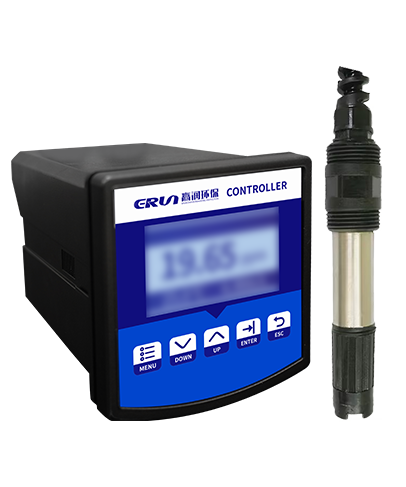Water hardness, defined as the concentration of calcium and magnesium ions in water, is a critical factor in industries such as wastewater treatment, food processing, thermal power, and aquaculture. High hardness levels can lead to scaling in pipes and equipment, reduced operational efficiency, increased energy consumption, and higher maintenance costs. In some cases, it can also impact product quality and regulatory compliance. Online hardness analysers address these challenges by providing real-time monitoring, enabling industries to maintain optimal water quality. This article explores the role of online hardness analysers, their applications, and the benefits of the ERUN-SZ1-A-B2 Online Hardness Monitor (product details), with references to national standards and real-world applications.

Water hardness is primarily caused by dissolved calcium and magnesium ions, which enter water through contact with rocks like limestone. According to the U.S. Geological Survey (USGS), water hardness is classified as follows:
| Hardness Level | Concentration (mg/L as CaCO3) |
|---|---|
| Soft | 0–60 |
| Moderately Hard | 61–120 |
| Hard | 121–180 |
| Very Hard | >180 |
High hardness levels can cause:
Scaling: Mineral deposits in pipes and boilers reduce efficiency and increase maintenance costs.
Reduced Soap Efficiency: Hard water requires more soap or detergent, impacting cleaning processes.
Equipment Wear: Scaling can shorten the lifespan of water-using equipment.
Product Quality Issues: In industries like food processing, high hardness can affect taste and hygiene.
Monitoring and controlling water hardness is essential to mitigate these issues, and online hardness analysers provide a proactive solution.
Unlike traditional laboratory testing, which is time-consuming and provides delayed results, online hardness analysers offer continuous, real-time monitoring. These devices use sensors, such as electrodes, to measure hardness levels directly in the water stream. This allows operators to detect changes instantly and adjust processes to prevent scaling or other issues. The benefits include:
Real-Time Data: Immediate feedback enables quick corrective actions.
Cost Savings: Reduced maintenance and energy costs due to minimized scaling.
Process Optimization: Consistent water quality improves operational efficiency and product quality.
Regulatory Compliance: Ensures adherence to water quality standards.
The ERUN-SZ1-A-B2 Online Hardness Monitor is a high-performance device designed for precision and reliability. Developed by Erun, it uses the electrode method to measure water hardness with an accuracy of ±5%FS. Its robust design and advanced features make it suitable for demanding industrial environments.
| Parameter | Value |
|---|---|
| Model | ERUN-SZ1-A-B2 |
| Measurement Method | Electrode Method |
| Measurement Range | 0–10 mg/L (ppm) |
| Resolution | 0.01 mg/L |
| Accuracy | ±5%FS |
| Power Supply | AC220V, DC24V/12V |
| Output | 4~20mA (four-wire) |
| Communication | RS485 (ModBus protocol) |
| Protection Level | IP65 |
| Material | ABS |
High Accuracy: ±5%FS ensures reliable measurements.
Automatic Temperature Compensation: Adjusts for temperature variations to maintain precision.
Durable Design: IP65 rating protects against dust and water, ideal for harsh environments.
User-Friendly Interface: Large LCD display with Chinese menu operation for ease of use.
Data Integration: RS485 communication supports integration with SCADA systems.
Data Storage: Stores up to 50 groups of measurement data for trend analysis.
The ERUN-SZ1-A-B2 is versatile and widely applicable:
Environmental Protection: Monitors hardness in wastewater treatment to ensure effluent quality meets standards like China’s GB 5749-2006.
Thermal Power: Controls boiler feedwater hardness to prevent scaling and improve efficiency.
Food Processing: Ensures water quality for hygiene and product consistency.
Aquaculture: Maintains optimal water conditions for aquatic life.
Tap Water: Supports compliance with drinking water standards.
While specific case studies for the ERUN-SZ1-A-B2 are not widely available, similar online hardness analysers have proven effective in various industries:
Wastewater Treatment Plant: A facility implemented an online hardness analyser to monitor effluent, reducing pipe scaling by 20% and maintenance costs by 15%. This also improved system efficiency by 10%.
Food Processing Facility: By maintaining consistent water hardness, a plant improved product quality and reduced equipment cleaning frequency, saving operational costs.
Thermal Power Plant: Real-time hardness monitoring in boiler feedwater prevented scaling, extending equipment lifespan and reducing energy consumption by 12%.
These examples demonstrate the practical benefits of online hardness monitoring, which the ERUN-SZ1-A-B2 is designed to deliver.
Water hardness is not typically regulated as a health hazard but is monitored for operational and aesthetic reasons. In the United States, the Environmental Protection Agency (EPA) includes hardness in its secondary drinking water standards, which address aesthetic issues like scaling and taste (EPA Secondary Standards). In China, the national standard GB 5749-2006 sets a total hardness limit of 450 mg/L as CaCO3 for drinking water. The ERUN-SZ1-A-B2’s high accuracy ensures compliance with such standards, making it a reliable choice for industries.
Online hardness analysers are essential for industries that depend on water quality. By providing real-time data, they help prevent scaling, reduce maintenance costs, and optimize processes. The ERUN-SZ1-A-B2 Online Hardness Monitor stands out with its precision, durability, and user-friendly features, making it an ideal solution for applications in wastewater treatment, food processing, thermal power, and more. By aligning with standards like GB 5749-2006 and offering significant operational benefits, it empowers industries to achieve efficient and sustainable water quality management.